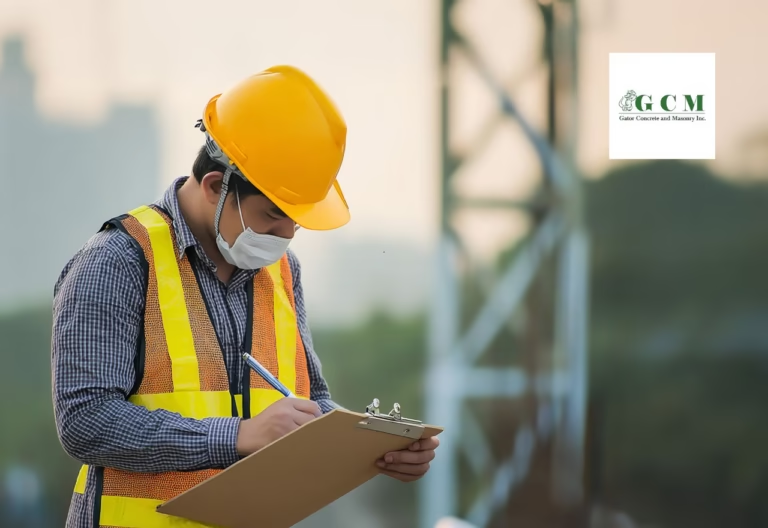Every solid project starts from the ground up—literally. You can have the best crew, the cleanest blueprints, and the most expensive materials, but if the ground beneath it isn’t right, everything above it’s at risk. Funny thing is, one of the most overlooked steps in site prep isn’t about concrete or machinery—it’s about checking the site before the first scoop of dirt moves. We’re talking about pre-grading inspections.
Too many contractors rush this part, thinking it’ll save time. But here’s the truth: skipping pre-grading inspections can snowball into drainage disasters, failed compaction tests, and costly rework that eats your schedule alive. We’ve seen it firsthand on Florida job sites. One missed inspection can set a project back weeks, especially when heavy Tampa rains come pouring down on soft, untested soil.
In this business, you don’t get points for speed—you get respect for doing it right the first time. And in Tampa’s clay-heavy, moisture-sensitive soils, that means you can’t afford to skip a pre-grading inspection. You might think you’re cutting corners to save a day, but really, you’re setting yourself up for headaches, callbacks, and maybe even penalties.
Let’s break down why this simple step matters more than most realize—and how it separates the pros from the amateurs.
What Is a Pre-Grading Inspection?
In plain language, a pre-grading inspection is a full site check before earthmoving begins. Think of it as your project’s “green light.” It’s when inspectors, engineers, or sometimes your site superintendent come out to verify that everything—soil, slopes, drainage, and erosion controls—is ready for the heavy equipment to roll in.
Here’s what they usually check:
- Soil Testing and Moisture Content: Making sure the subgrade is stable and not too wet or dry to compact properly.
- Drainage and Slope Review: Confirming that the site slopes direct water away from foundations and neighboring properties.
- Utility Marking and Setbacks: Ensuring underground utilities are located and protected before digging.
- Environmental and Erosion Control Compliance: Verifying that silt fences, storm drains, and runoff barriers are installed to prevent washouts.
In Tampa and Hillsborough County, passing this inspection isn’t optional—it’s a must for moving forward with grading permits. Fail it, and your site sits idle until it’s corrected and re-inspected. And every idle day costs money.
The best grading contractors know this is where good jobs start. And the great ones? They don’t just pass inspections—they prepare for them.
Why Contractors Shouldn’t Skip It
- It Saves You from Costly Rework
Skipping inspections might seem harmless until you’re re-grading the same area twice. Grading mistakes are expensive. Fixing slopes or re-compacting soil doubles labor hours, eats fuel, and delays every trade behind you. One time, we saw a crew fail to check subgrade moisture before compaction. Looked solid at first glance, but when density tests came back, it failed across the board. The whole pad had to be redone.
That’s not just wasted time—it’s wasted trust. When the foundation crew shows up and can’t pour because the soil’s off-spec, you’re the one who takes the hit. Every day the site sits idle adds cost, frustration, and sometimes penalties.
A pre-grading inspection prevents all that. It confirms before the first compactor runs that your soil’s moisture, density, and slope meet specs. In short, it’s your insurance policy against rework.
- It Prevents Drainage Nightmares
You can’t talk about Tampa construction without mentioning rain. Down here, heavy storms are part of the deal. Mix that with poor slope grading, and you’ve got flooding, washouts, and even foundation shifts waiting to happen. When inspectors walk your site, they’re not being picky—they’re making sure water drains away from your structures, not toward them.
Runoff control isn’t just for inspection day. It’s about long-term durability. Proper grading protects landscaping, sidewalks, and block walls from erosion. It even keeps underground retention systems (like ADS drains) from clogging prematurely. We’ve been called to fix sites where the grading looked fine on paper but had no true water path. After one bad storm, there was standing water everywhere. Had a pre-grading inspection been done, that problem would’ve never reached the concrete phase.
If you’ve ever had to re-pour or patch because of settlement caused by bad drainage, you already know—it’s far cheaper to get it right upfront.
- It Protects Your Reputation
A contractor’s reputation in Tampa’s competitive market is built on one thing—reliability. Homeowners and developers remember the crews that deliver smooth inspections and on-schedule completions. When you consistently pass inspections the first time, you stand out.
Skipping a pre-grading inspection sends the opposite message: that you’re cutting corners. Even if you “get lucky” and things seem fine, word spreads fast when an inspection fails later on. Once that trust is gone, it’s tough to earn back.
- It Keeps You Code-Compliant
Florida’s building codes don’t play around when it comes to soil, slope, and drainage. Hillsborough County and most local municipalities require documented proof of grading inspections before site work starts. Skipping that means you’re not just risking the project—you’re risking fines, stop-work orders, or worse, having to redo everything under supervision.
Code compliance might sound bureaucratic, but it’s there to protect structures and people. A proper pre-grading inspection ensures the project meets environmental laws, drainage standards, and compaction regulations. And let’s be honest—once you build a good working relationship with local inspectors, your life gets easier. They know you do things right, and approvals come faster next time.
- It Helps You Plan Smarter
Good planning doesn’t start on paper—it starts with understanding the ground you’re building on. Pre-grading inspections give you early warnings about site conditions like sandy fill, clay pockets, or poor compaction zones. That’s gold for planning.
With accurate inspection reports, you can schedule your equipment better, order the right materials, and line up drainage systems ahead of time. Maybe you’ll find you need to reroute a slope or add an underground retention drain to meet runoff standards. Catching that early saves time, money, and a lot of headaches later.
Common Issues Found During Pre-Grading Inspections
Pre-grading inspections uncover what experience already suspects. Here are some of the most common red flags:
- Inadequate Soil Compaction or Over-Excavation: Too loose and the foundation settles; too deep and you’re wasting fill material.
- Improper Slope Angles: Even a one-degree error can lead to drainage pooling or soil erosion.
- Unmarked Utilities: Hitting an unmarked line can shut down a job for days.
- Standing Water or Poor Runoff: A clear sign of uneven grading or bad soil permeability.
- Missing Silt Fences or Stormwater Protections: Big no-no under Florida’s environmental laws.
When inspectors catch these early, you can fix them immediately. But if they’re missed, you’ll face fines, rework, and long delays. Addressing these upfront is always cheaper than repairing damage later.
After two decades in the field, we’ve learned to spot these issues before the inspector does. That’s the difference between being reactive and being ready. And readiness is what keeps your projects moving without hiccups.
The Role of Experienced Grading Contractors
Experience changes everything. A rookie might see a patch of dry soil and think it’s good to go. We look at the same spot and know it needs moisture adjustment before compaction. That’s the kind of difference pre-grading experience brings.
At Gator Concrete and Masonry, our grading crew doesn’t just show up with machines—we show up with foresight. Here’s how we make sure every site passes inspection:
- Pre-Inspection Walk-Throughs: We walk every site before the official inspection to catch potential issues early.
- Direct Communication with Inspectors and Engineers: We coordinate schedules, share plans, and clarify standards to avoid last-minute surprises.
- On-Site Corrections Before Sign-Off: If something’s off, we fix it right then and there. No waiting, no rescheduling.
Working in Florida soils for 20 years gives us a serious advantage. We know how to handle sandy fill, clay swells, and unpredictable moisture levels that confuse less-experienced crews. When we prep a site, it’s ready—not just for inspection, but for everything that follows.
A well-graded, well-inspected site sets the tone for the entire build. It’s what allows foundations to hold strong, drainage systems to flow right, and block walls to stand straight for decades. That’s why experienced grading contractors aren’t an option—they’re a necessity.
Tips for a Successful Pre-Grading Inspection
Want your inspection to go smoothly? Follow these field-tested tips:
- Schedule Early: Don’t wait until the last minute. Book your inspection as soon as your site’s prepped.
- Prepare Documents: Have permits, soil reports, and plans ready for the inspector.
- Install Erosion Controls: Make sure silt fencing and stormwater protections are already in place.
- Keep Crews Ready: If the inspector flags something, fix it on the spot.
- Be Present: Walk with the inspector. It shows professionalism and lets you address issues immediately.
From our experience, inspectors appreciate a proactive crew. It builds respect, and respect leads to faster approvals. The goal isn’t just to pass—it’s to pass cleanly, the first time, every time.
What Happens If You Skip It
Here’s the cold truth: skipping a pre-grading inspection almost always costs more than doing it. When you bypass it, you open the door to:
- Project Delays: Failed final inspections stall construction timelines.
- Added Engineering Reports: You might need extra testing to prove stability later.
- Denied Insurance or Warranties: Improper base prep can void coverage.
- Legal or Contract Disputes: Developers won’t pay for non-compliant work.
We’ve seen projects shut down mid-stream over something as simple as missing a silt fence or starting grading without clearance. Those mistakes hurt not just your wallet, but your reputation too.
Bottom line—skipping this step isn’t saving you time. It’s gambling with your schedule, money, and credibility. And in this business, that’s a bet you can’t afford to lose.
Ready to Break Ground? Let’s Prep It Right
Pre-grading inspections might seem like just another box to check, but to us, it’s where real craftsmanship starts. A few hours of inspection can save weeks of rework. The best contractors don’t rush the groundwork—they perfect it.
At Gator Concrete and Masonry Inc., we believe in doing it right from the dirt up. Whether it’s grading, drainage (including ADS and underground retention systems), demolition, block walls, site cleaning, sand removal, or even tree stump removal—we handle it all with the same principle: build solid, build once.
So, if you’re planning a project in Tampa and want to make sure it stands strong from the start, contact GCM today. We’ll make sure your site passes inspection, your grading holds true, and your project stays on schedule—no shortcuts, no surprises.
Because when it comes to the ground beneath your project, there’s no room for guesswork.
Just solid work. Gator work.

